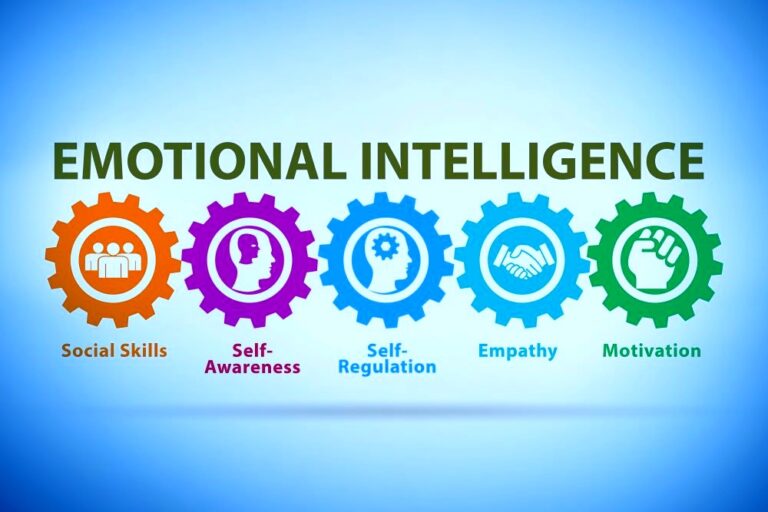
Welcome to Part I of our 4 part series on Emotional Intelligence (EQ) in leadership and business. As a leader, your EQ skills play a crucial role in your success and the success of your organization. We will discuss EQ and how they improve leadership and business.
The components of EQ are as follows:
Self-Awareness – This component refers to your ability to recognize and understand your emotions, strengths, weaknesses, values, and goals. Self-awareness is the foundation of emotional intelligence because it enables you to accurately identify your emotional state, which is the first step to managing and regulating your emotions effectively.
Self-Regulation – Self-regulation is the ability to control and manage your emotions, thoughts, and behaviors. It involves being able to adapt to change, manage stress, and maintain composure in challenging situations. As a leader, self-regulation is essential because it enables you to lead with a clear head, make rational decisions, and set an example for your team.
Motivation – Motivation is the drive to achieve goals and accomplish tasks. It involves being persistent, optimistic, and proactive in pursuing your objectives. Leaders with high levels of motivation are better equipped to inspire and motivate their team members to achieve their goals.
Empathy – Empathy is the ability to understand and relate to other people’s emotions and perspectives. As a leader, empathy is critical for building trust and rapport with your team members. It enables you to communicate effectively, resolve conflicts, and build strong relationships with your team members.
Social Skills – Social skills refer to the ability to communicate effectively, build and maintain relationships, and work well with others. As a leader, social skills are essential for building strong relationships with your team members, clients, and stakeholders. It involves being able to express oneself clearly and assertively, listen actively, and respond appropriately to social cues.
In conclusion, EQ is a critical factor in leadership success. Developing emotional intelligence skills takes time and effort, but with practice and dedication, you can improve your EQ skills and enjoy greater success as a leader. By focusing on self-awareness, self-regulation, motivation, empathy, and social skills, you can become a more effective leader and create a positive and productive workplace culture.
Investing in EQ training for yourself and your team can have a significant positive impact on your organization’s success. As a leader, it is your responsibility to lead by example and foster a workplace culture that values emotional intelligence. Take your free EQ test here. https://globalleadershipfoundation.com/geit/eitest.html